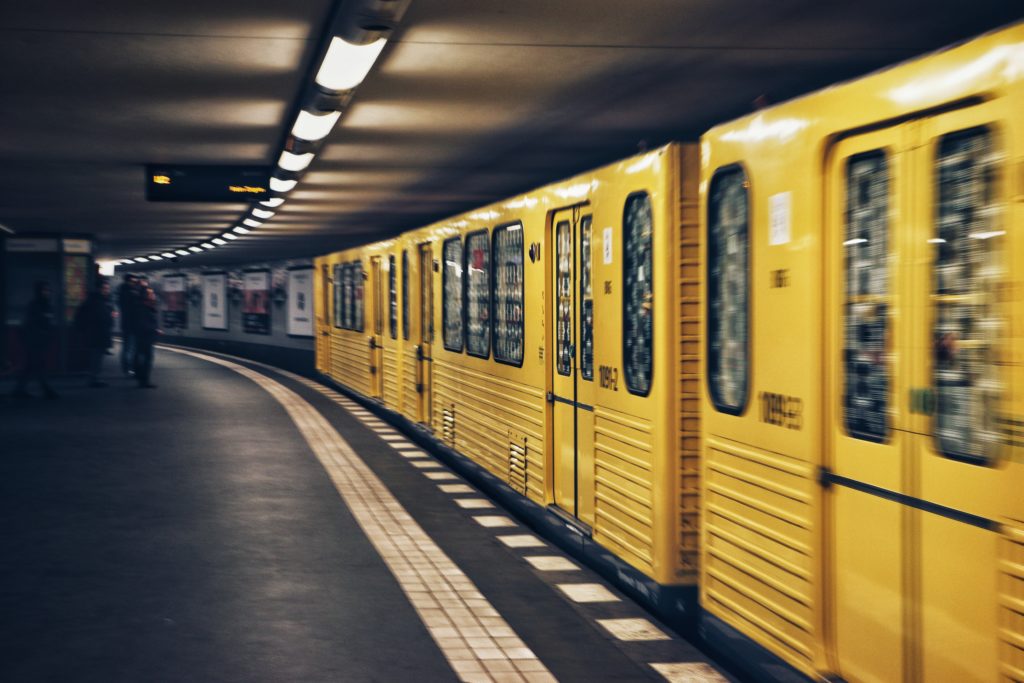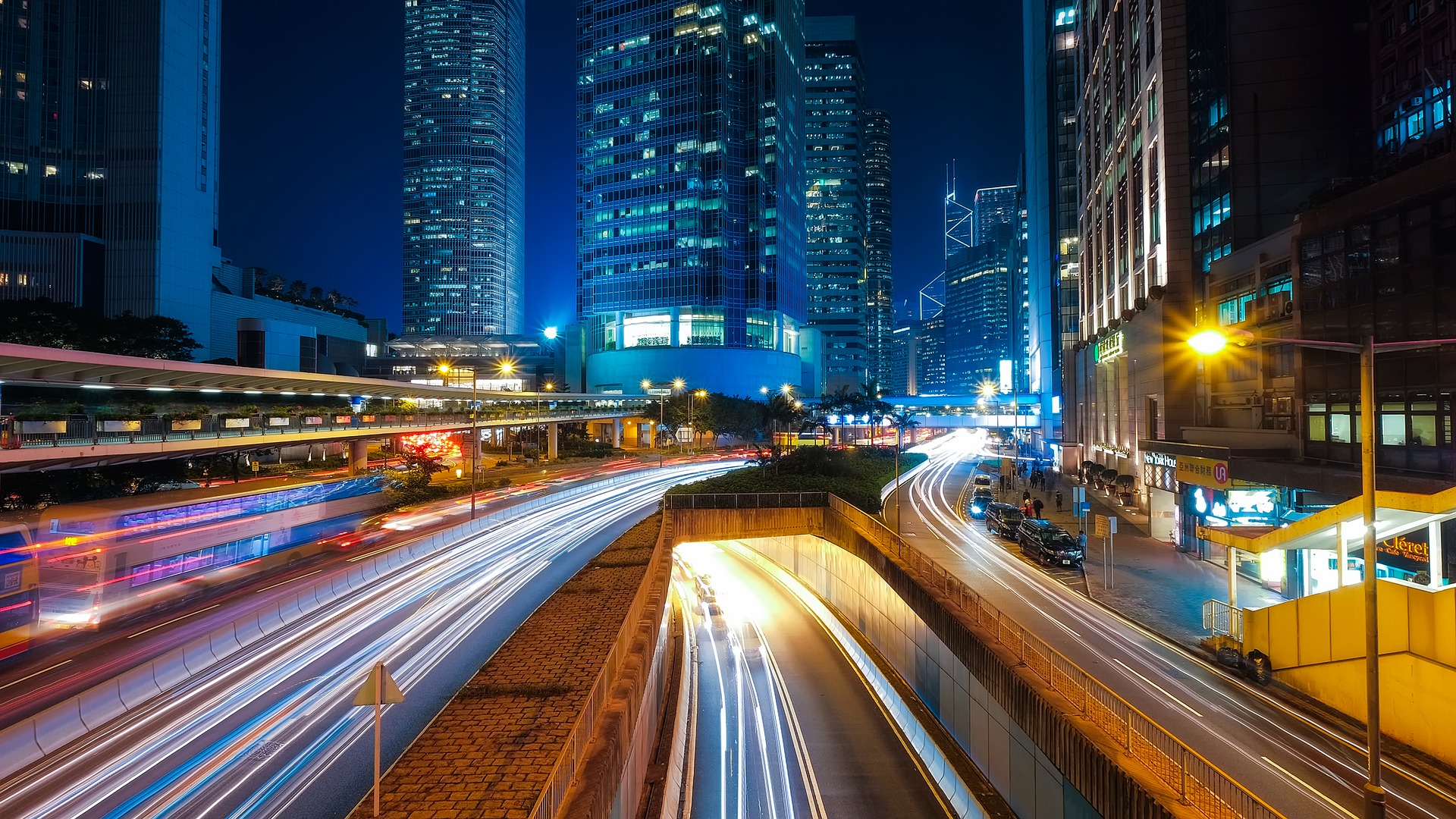There is over a billion of cars in the world. We are basically in love with them, even though they have brought many issues. Unfortunately they can’t be ignored anymore, we need to face them. Perhaps technologies such as blockchain will help us bring the balance to the streets or even reduce the carbon footprint the cars create.
With the growing urbanisation rate the topic of the increasing issue of traffic has kept returning. The citizens of huge urban sprawls are most probably familiarised with many hour long traffic jams which complicate their lives with huge delays. The experts agree that the problem lies in the amount of the cars owned by people. Because the majority of them utilises the fossil fuels, they also contribute towards the climate change and the environmental pollution. However, despite all of the red flags, it may be impossible to find an alternative in the closest future. That’s why, the solutions which offer a reformation to the existing systems are so important.
As far as the reduction of air pollution goes, many see hope in the electric drive. However its current price makes it inaccessible to most consumers.
It’s worth asking a question, however, if the majority of people really need to have a car of their own.
High costs of purchasing a car or its long-term renting and the need of a costly maintenance can become absurd when in reality the vehicle is used sparsely
For many people, the solution to this predicament might be the carsharing, a practice which has recently growing in popularity.
Such a solution might definitely change the nature of our perception towards the cars. If we are using rentable cars in moderation, they are much cheaper and practical than the ones we own. The consumers use them only if they are necessary. They do not need to suffer the costs of maintenance and car parking fees. Carsharing can allow the traffic to be reduced, reducing the amount of parked cars and cars entering the city centre. Thanks to the services such as the 4mobility, more and more people can additionally choose the electric car which is by far a better choice for the environment.
The potential of carsharing was noticed by the McKinsey report which priced the value of the global market of shared economy at 54 trillion dollars in 2016. It also estimated that this value shall be growing by 30% per year until year 2030. It is to no surprise that this topic was fetched by the start-ups and the global companies alike.
Carsharing and blockchain
Despite the growing popularity, the carsharing procedures could definitely use some improvements. Revolutionary blockchain technology can help the potential of carsharing be truly realised.
Basing the platform on the decentralised blockchain network can help the companies at creating the transparent, potentially global systems. Thanks to the dispersion of databases between the users , the data stored within them such as the ratings of the renters or financing the very platforms, they can be regularly verified. This makes the service incredibly reliable and resistant to manipulations.
By using the smart contracts, the direct transactions between the parties could be carried out without the need of third parties, making the carsharing much more accessible.
On the other hand the cryptocurrency transactions, carried out by Derant for example, can free the users from the costs of conversion charges. Thanks to this the final price is only dependent on the conversion factor of the users’ bank. Thanks to that, the accessibility of the service can become global.
Siemens is thinking of blockchain
The usage of blockchain technology in carsharing has caught the attention of Siemens. The sister company of the German titan- siemens mobility is trying to explore its potential in the incoming years. Its goals include improving the processes of refuelling, parking or the delivery of the desired vehicle.

Public transport
Carsharing is also a perfect solution for people who don’t use their car every day and use the public transport for commuting. It turns out that the blockchain technology can aid us here too.
Increasing the transparency
When car breaks down on the way to work, one person will be incapable of reaching their destination. However, if the bus breaks down, there will be around 50 people late to their work. The information about the condition of the vehicle he is taking is very important for the passenger. Both for his comfort and his safety.
Accidents with burning buses in Rome in 2017 show us the lethal effects of negligence of the public transportation. By making the data about their condition available in the blockchain network, it would be possible have an insight upon the status of the buses and other vehicles and allow for a quicker problem solving in that matter.
Blockchain allows for registration of all the processes which are carried out by the bus – from its creation to all of its repairing. Thanks to the saving system in the library of blocks its easy to track the entire chain and to find the potential omits.
Such a system is resistant to manipulations – the data which was once saved on the blocks cannot be altered. Due to its decentralisation there is no supervision by the superior party. This means that in case of an emergency, no party could change or delete the information which would become detrimental to it.
Ticket sales
Currently, the passenger is often forced to buy an additional ticket to travel from one city to another. Its very uncomfortable and can bring additional costs.
Platforms such as Dovu have a chance to change this through the power of blockchain by allowing to pay for the tickets with the special tokens. Thanks to this the comfort of the passenger is increased because he can buy all of the tickets with the use of one app with one form of payment.
Blockchain and the digitalisation of the documentation
To make the communal transport a worthy replacement of the private forms of transport, the infrastructure must be upgraded. However, with a greatly expanded infrastructure comes a greatly expanded documentation. The majority is kept in a paper form. On a global scale, the digitalisation of such data would bring a great conservation of paper. Thanks to that the Public transport would become even more ecological.
Due to many reasons, decentralised databases would be more optimal than the traditionally used centralised ones. First of all they are much more resistant to manipulation. Secondly, thanks to the dispersion of data it can be much more resistant to destruction. When the data is stored in many places, it can be restored easily when one of the databases is lost.
Range of benefits
The following examples show us how the human mobility can be change with the usage of the blockchain technology. Creating tokens, outsourcing the services of blockchain like Nextrope did with the Value and the Alior Bank, can help us change the way we perceive the means of transportation. They can reduce the costs and positively benefit the environment. They can also increase the comfort of the passengers. They help at improving of the working conditions of Taxi drivers. They build new, more beneficial models of the car traffic and the public transport. Blockchain brings a new perspective and a fresh start for many of the ideas existing in the context of means of transportation.



